- Home
- Florida Road Trips on the East-West Highways
- Alligator Alley
ALLIGATOR ALLEY
By Mike Miller May 18, 2024
Alligator Alley is the nickname for the 80 mile stretch of I-75 from Naples in Southwest Florida to Weston and Fort Lauderdale on the East coast.
It travels across the Florida Everglades south of Lake Okeechobee. There are no developed areas along this route. It's sawgrass and cypress swamps all the way.
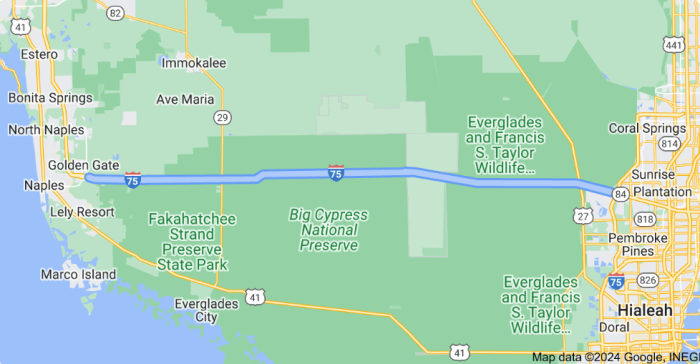 Alligator Alley Location Map
Alligator Alley Location MapThe route goes through Everglades National Park and part of the Big Cypress National Preserve.
I have traveled back and forth on this highway dozens of times, but only when I'm in a hurry. Other times I take US-41, known as Tamiami Trail from Naples to Miami.
The speed limit on Alligator Alley is 70mph.
There is more scenery and places to stop and explore on Tamiami Trail. Up until the 1960s, this was the only way to cross the heart of the Everglades down in this part of Florida.
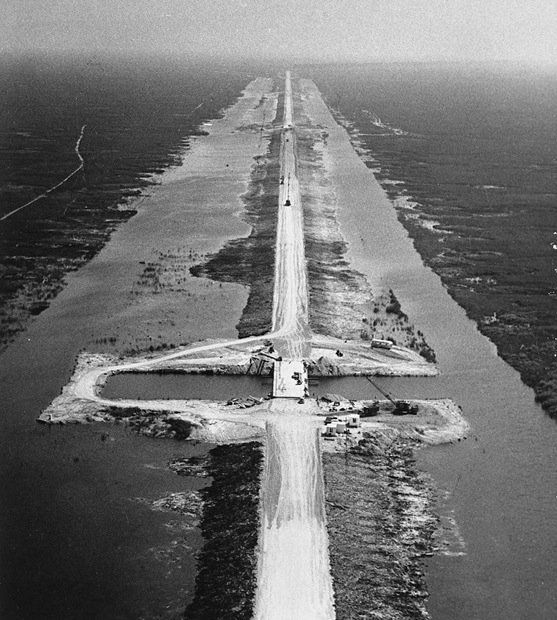 Alligator Alley Under Construction 1965
Alligator Alley Under Construction 1965Alligator Alley was completed in 1969 as State Road 84 and officially named the Everglades Parkway. It was only two lanes, straight most of the way, and was a toll road.
The first time I drove it was from Naples to Fort Lauderdale the year it opened.
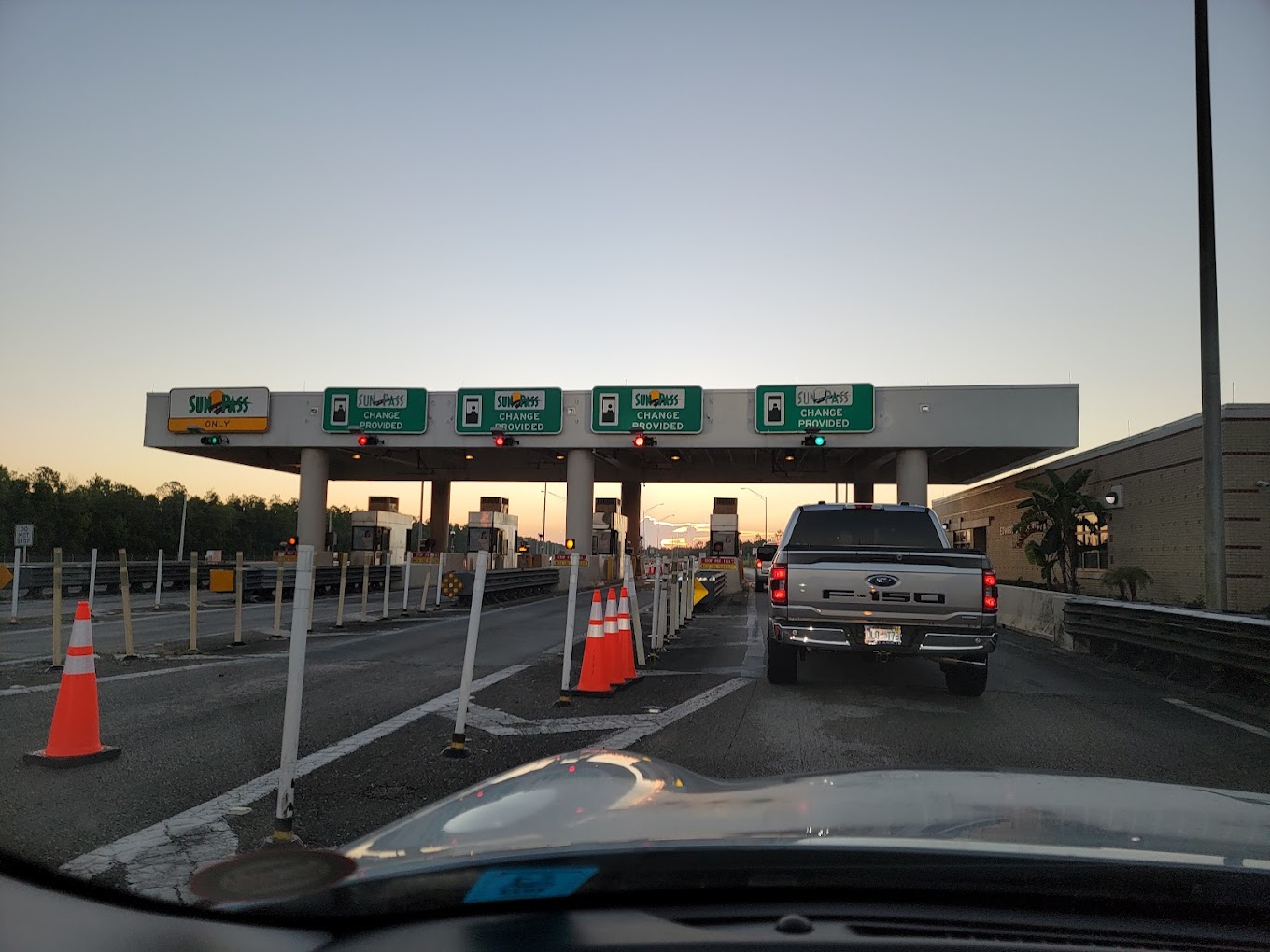 Collier County Toll Booth in Naples
Collier County Toll Booth in NaplesIt was extremely dark on this old road at night and many accidents happened in the 1970s and 1980s. The deep ditches on either side of the highway had their share of alligators.
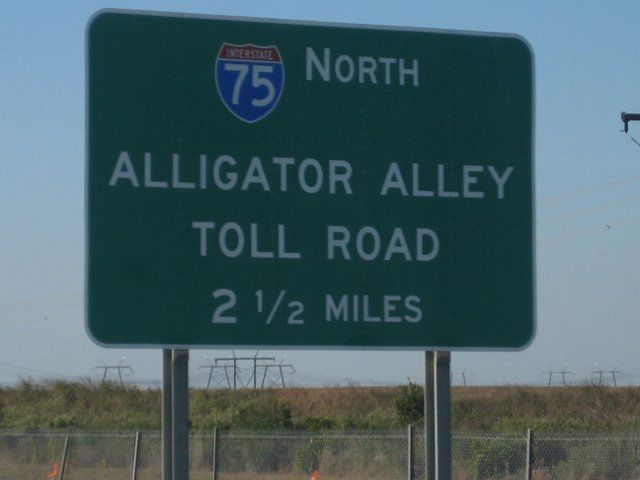
There was always the chance of encountering an endangered Florida panther or black bear now and then, along with an alligator. It was a scary trip after dark.
In the 1980s I-75 was being extended down Florida's west coast to Naples. From there it curved to the east and headed toward Weston along the route of State Road 84.
When traveling east on Alligator Alley you are on I-75 South, and when going west you are on I-75 North.
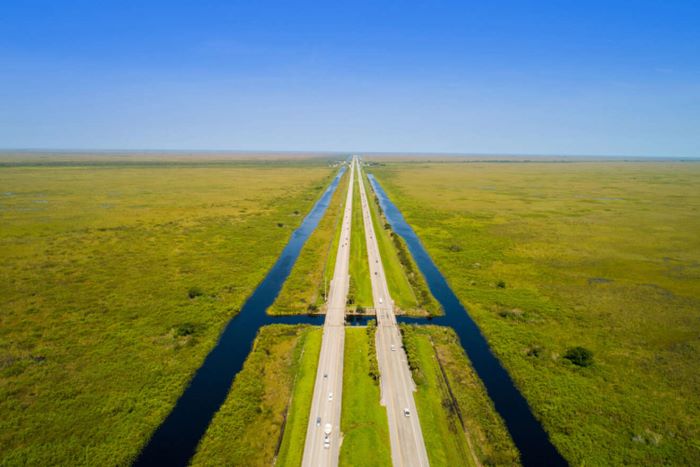 Aerial View of Alligator Alley
Aerial View of Alligator AlleyThe two lanes of the existing road were made into eastbound I-75, and another two westbound lanes were built to the north with a grassy median between.
This greatly improved safety and things were made even better a few years later when fences were installed along the highway. Alligator Alley today is a very well maintained highway.
There are several parking lots and recreation areas along both sides of the highway. Each area has a boat ramp and is a safe place to look for alligators in their natural habitat.
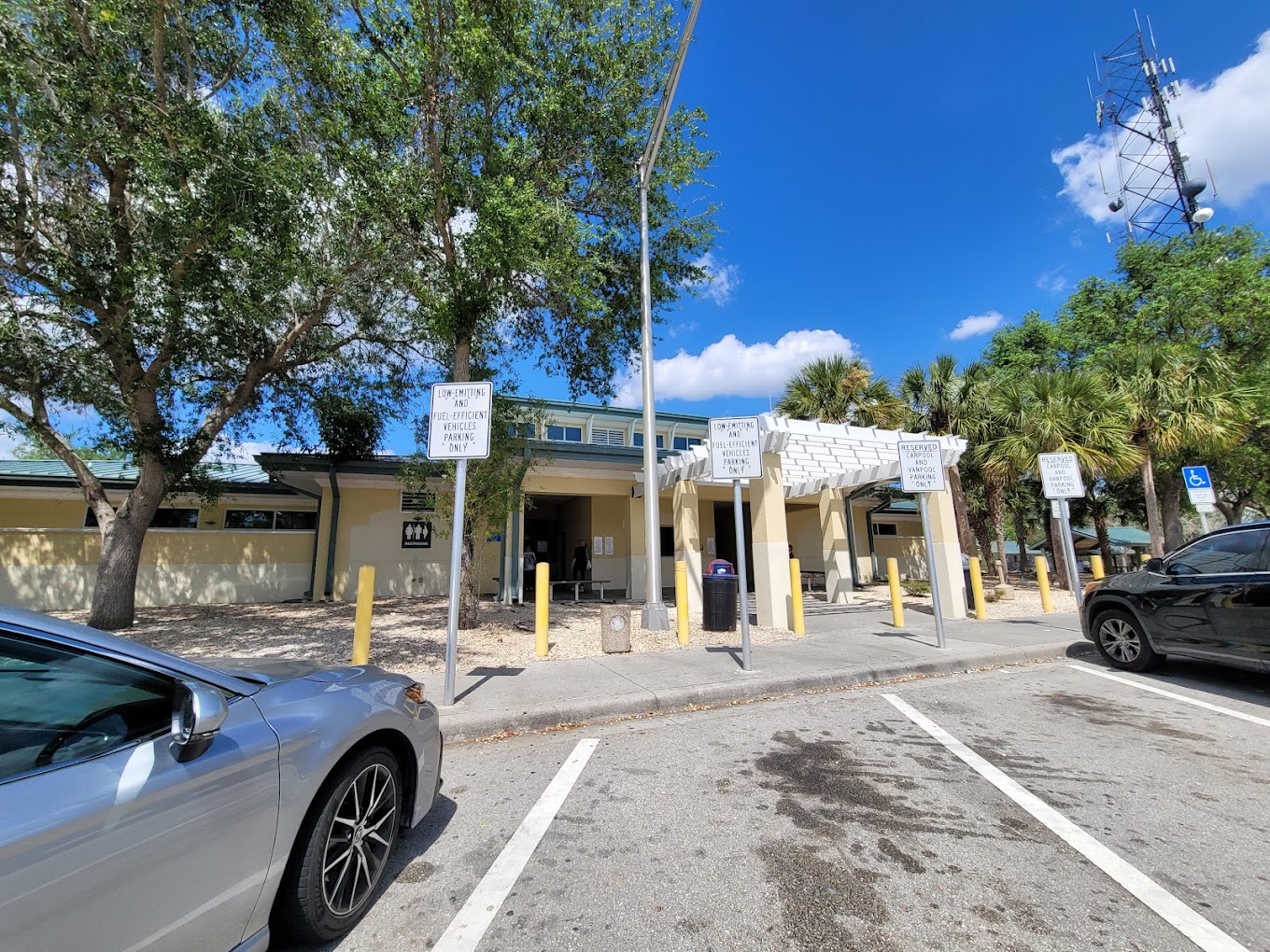 Collier County Rest Area
Collier County Rest AreaThere is a clean Collier County rest area near the middle of Alligator Alley. It has clean restrooms and roofed picnic tables.
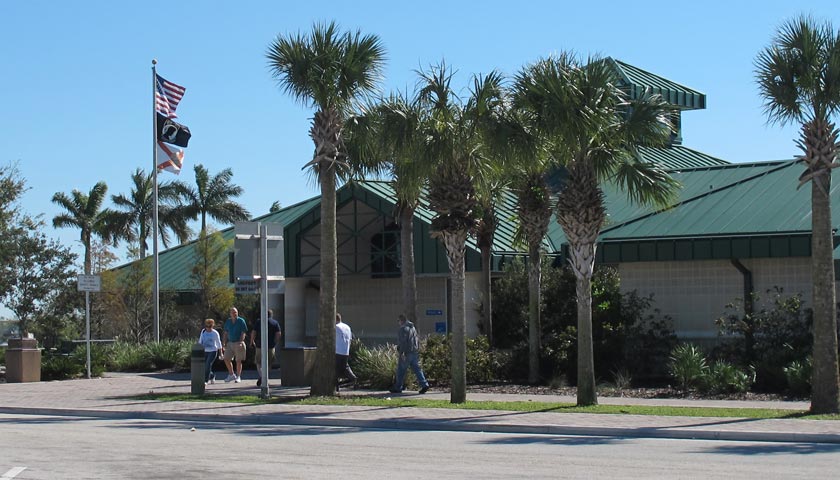 Broward County Rest Area
Broward County Rest AreaThere is also a Broward County rest area closer to the Fort Lauderdale end of the highway. It also has clean restrooms and picnic facilities.
These days it is typical not to see a single gator on your trip across unless you stop at one of the rest areas and stare at a canal for awhile.
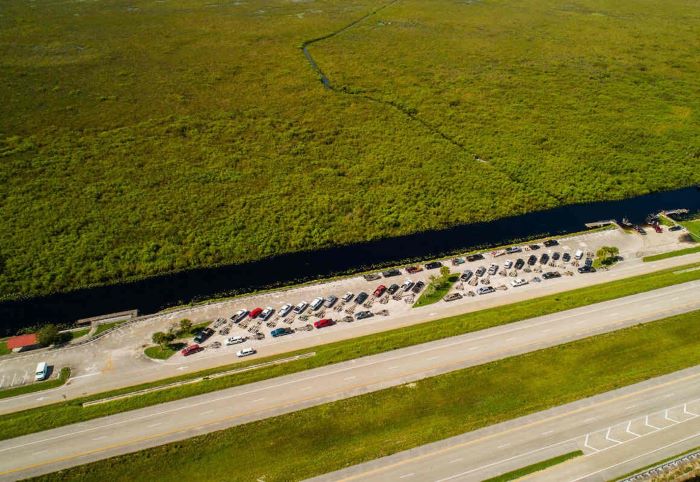 Recreation and Rest Area Along Alligator Alley
Recreation and Rest Area Along Alligator AlleyAlligator Alley is still a toll road. It costs $3.25 for a car and a lot more for a truck.
There are toll booths on both ends of Alligator Alley. It's a good idea to check you gas tank before taking the trip. There is only one gas station along the way, the Miccosukee Service Station and Plaza.
This is at an interchange with the two-lane road that leads north to the Seminole Big Cypress Indian Reservation.
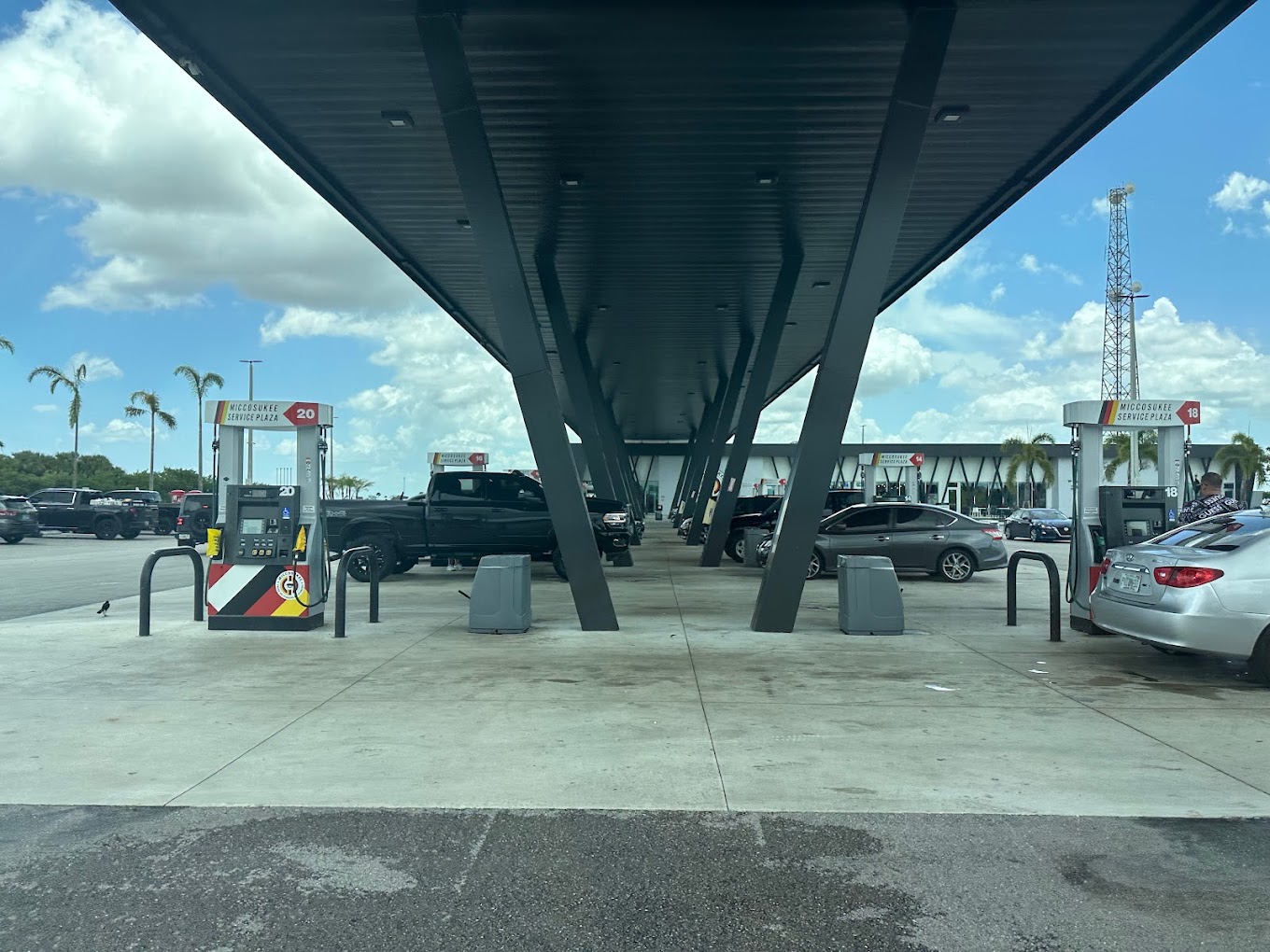 Miccosukee Service Plaza and Gas Station
Miccosukee Service Plaza and Gas StationThe service plaza has restrooms, a small restaurant, convenience store items, coffee, and souvenirs. It is the only place to get gas on Alligator Alley.
There is also a small casino at this interchange.
A nice side trip is the 17 miles north to the Indian Reservation and the Ah-Tah-Thi-Ki Museum. This winding road is known as Snake Road.

Florida is the fastest-growing state in the United States and also the fastest-changing. If you see anything in this article that has changed or is in error, please let me know.
Thousands of Florida fans subscribe to our free daily Ezine, Florida Heritage Travel and we have 130,000 followers on Facebook.
By Mike Miller, Copyright 2009-2025
Florida-Back-Roads-Travel.com
Florida Back Roads Travel is not affiliated with or endorsed by Backroads, a California-based tour operator which arranges and conducts travel programs throughout the world.
